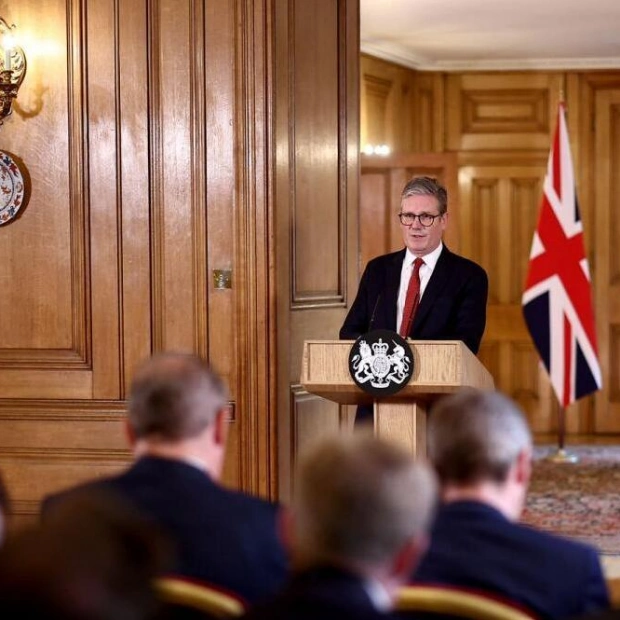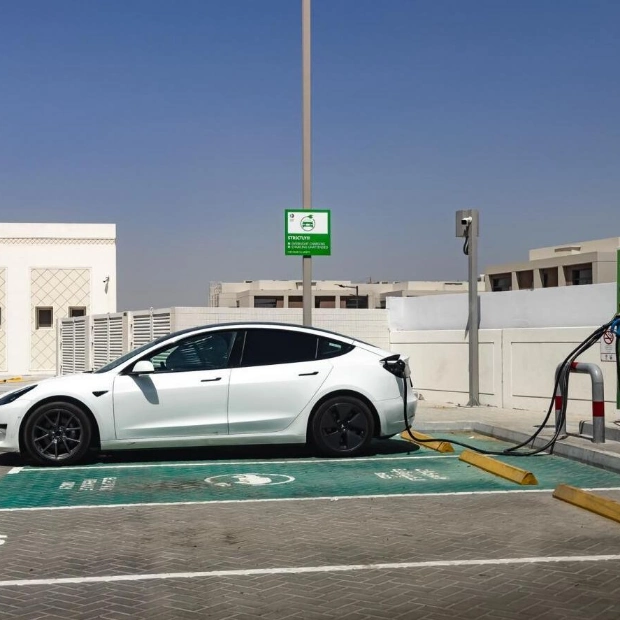Britain's Labour Party is expected to triumph in the upcoming national election on Thursday, securing a significant majority and reclaiming power after 14 years in opposition. Here are the key domestic policy initiatives outlined in the party's manifesto prior to the July 4 vote:
ECONOMY: Labour's primary goal is to achieve sustained economic growth through wealth creation. The party pledges to be both pro-business and pro-worker, and will implement a new industrial strategy to replace short-term economic policies. Labour plans to establish a National Wealth Fund, capitalized at £7.3 billion, designed to attract three pounds of private investment for every pound of public funds, focusing on supporting growth and clean energy. The party promises to abandon austerity measures and will adhere to fiscal rules ensuring a balanced budget, with daily expenses covered by revenues, and a reduction in debt as a percentage of the economy by the fifth year of the forecast.
TAXES: Labour has vowed not to increase taxes for working individuals, maintaining the current rates for basic, higher, and additional income tax, National Insurance, and VAT. Corporation tax will be capped at 25 percent. The party also intends to close tax loopholes that allow certain wealthy 'non-dom' individuals residing in Britain to evade taxes.
HEALTH AND SOCIAL CARE: Labour aims to reduce waiting times in the National Health Service by increasing weekly appointments by 40,000. This includes incentivizing staff to conduct additional appointments during off-hours, consolidating resources across neighboring hospitals, and utilizing spare capacity in the private sector. The party plans to double the number of diagnostic cancer scanners, train thousands of additional family doctors, and ensure a face-to-face appointment for all who desire one. Labour also promises to provide 700,000 more urgent dental appointments, recruit new dentists in underserved areas, and introduce a supervised tooth-brushing program for children aged 3 to 5.
DEFENCE: Labour intends to increase defense spending to 2.5 percent of GDP and will conduct a Strategic Defence Review to evaluate current threats and necessary capabilities. The party aims to strengthen the domestic defense sector and secure resilient supply chains, including steel. UK businesses will be prioritized for defense investments, and procurement processes will be reformed.
IMMIGRATION: Labour pledges to decrease net migration and reform the points-based immigration system by imposing visa restrictions and addressing domestic labor shortages through training. The party will abandon the current government's plan to deport asylum seekers to Rwanda, focusing instead on combating human smuggling and enhancing border security. Additional asylum caseworkers will be hired to address the backlog of claims, and a new returns and enforcement unit will be established to expedite removals to safe countries for those without legal right to stay.
CLIMATE AND ENERGY: Labour aims to achieve clean power by 2030 through a significant expansion of onshore wind, solar, and offshore wind capacities. The party will create a state-owned Great British Energy, supported by £8.3 billion, to invest in leading technologies and capital-intensive projects. Labour will maintain a strategic reserve of gas power stations for supply security and will not issue new licenses for oil and gas fields in the North Sea. The party plans to close loopholes in the windfall tax on oil and gas companies, extend the sunset clause in the Energy Profits Levy until the end of the next parliament, increase the levy rate by three percentage points, and eliminate investment allowances.
EDUCATION: Labour plans to recruit 6,500 new teachers in critical subjects and fund free breakfast clubs at every primary school. The party also intends to expand childcare availability by establishing 3,000 new nurseries in primary schools. Labour pledges to end the tax exemption for fee-paying schools to redirect more investment into state-run schools.
CONSTITUTIONAL REFORMS: Labour will lower the voting age to 16. The party will also reform the House of Lords, including abolishing the hereditary peers' right to sit and vote and implementing a mandatory retirement age. Ultimately, Labour is committed to replacing the House of Lords with a more representative second chamber for the UK's regions and nations.






